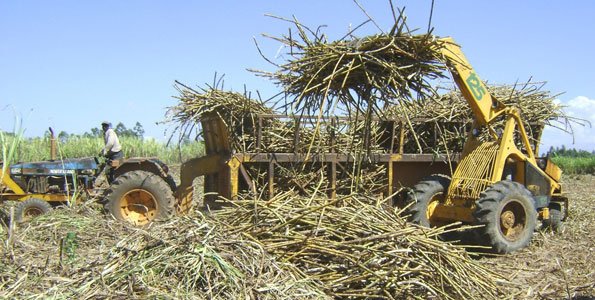By Isaac Christopher Lubogo, a Ugandan writer, lawyer, and lecturer
Introduction: The Bitter Irony of a Sweet Crop
Busoga, once known as the “Sugar Bowl of Uganda,” has become a region synonymous with paradox. Despite vast expanses of sugarcane fields, the people who toil in them remain trapped in a vicious cycle of poverty, landlessness, debt, and disenfranchisement. Districts like Kamuli, Mayuge, Jinja, Bugiri, Kaliro, Namutumba, Iganga, Luuka, and Buyende are lush with sugarcane — but dry with hunger, school dropouts, and economic despair.
On May 30, 2025, President Yoweri Kaguta Museveni signed into law the Sugarcane (Amendment) Act, 2025, a legal reform many hail as a turning point. But the question remains: Will this law merely add sweet legal ink to the statute books, or can it truly redress the sugarcane curse that has haunted Busoga for decades?
1. The Anatomy of Busoga’s Sugarcane-Driven Poverty
Before delving into the law, one must understand how sugarcane—ironically—became the architect of misery in Busoga:
Monoculture Trap: Over 80% of cultivable land in many Busoga districts is under sugarcane. The crop, while lucrative for millers, offers delayed and unpredictable returns for farmers.
Delayed Payments & Exploitation: Farmers often wait 6–12 months to be paid, if at all. Some never receive their dues as millers exploit the absence of pricing standards.
Food Insecurity: Entire families grow sugarcane instead of food crops, resulting in reliance on expensive markets and frequent famine-like conditions.
Land Grabbing & Contractual Slavery: Middlemen and millers tie farmers into exploitative contracts, leading to massive land loss and displacement.
Youth Unemployment: Sugarcane requires minimal labor after planting, denying youth regular income or sustainable engagement.
2. What the Sugarcane (Amendment) Act 2025 Brings to the Table
A. Establishment of the Sugar Industry Stakeholders Council
For the first time, farmers now have structured representation.
The rotational leadership between millers and growers ensures equitable governance.
This is vital for Busoga where decisions were historically made by absentee millers and politically connected elites.
Relevance to Busoga:
Busoga’s farmers can now voice grievances, negotiate prices, and propose development strategies. This challenges decades of top-down policies that ignored their realities.
B. Standardized Pricing Formula
The Act compels millers to pay farmers a fixed formula-based price.
No more arbitrary deductions or mystery math—what you plant is what you earn.
Relevance to Busoga:
This directly addresses exploitative pricing in Luuka, Mayuge, and Kamuli, where farmers often received less than 50% of market value for their cane. It formalizes justice.
C. Revenue Sharing from By-products (Ethanol, Molasses, Electricity)
The Act mandates millers to share profits from secondary products.
For every liter of ethanol or kilowatt of electricity sold, the farmer now gets a cut.
Relevance to Busoga:
Busoga hosts Kakira Sugar, Mayuge Sugar, and Kamuli Sugar, all of which have ethanol plants or cogeneration systems. Until now, farmers never saw a shilling from this vertical wealth.
D. The Sugar Development Fund
Financed by 70% from millers and 30% from outgrowers, the fund will support research, irrigation, better cane varieties, and farmer training.
Relevance to Busoga:
The fund can revive Luuka and Buyende’s struggling smallholder cooperatives, provide seed capital to struggling youth, and rehabilitate dilapidated feeder roads that make cane transport a nightmare.
E. The Four-Acre Model & Alternative Livelihood Guidance
Museveni emphasized that households with less than 4 acres should not grow sugarcane.
Instead, they should diversify with coffee, poultry, food crops, and fruits.
Relevance to Busoga:
Over 70% of households in Namutumba and Kaliro own less than 3 acres. This guidance is not just policy—it is survival wisdom. It nudges the region out of monoculture-induced famine and toward agricultural resilience.
3. Deconstructing the Implications: Will the Law Work for Busoga?
A. Legal Empowerment of the Disempowered
The Act gives legal backing to the rural peasant, finally treating him not as a laborer but as a stakeholder in a billion-shilling industry. It removes the invisible cloak of disposability draped over farmers for generations.
B. Restoration of Dignity and Negotiating Power
With representation on the Council, Busoga farmers regain negotiating legitimacy—from Bugiri to Namutumba. This is not mere tokenism; it is structural redress.
C. Protection Against Market Shocks
Standardized pricing buffers farmers against seasonal manipulations and false scarcity narratives used by millers to lower buying prices.
D. Unlocking Economic Multipliers
Revenue sharing and the development fund create multiplier effects: microcredit for women in Mayuge, irrigation for sugarcane in Kamuli, and youth cooperatives in Buyende.
4. Challenges That Remain
Enforcement Fatigue: Will millers comply, or will they continue to co-opt district officials?
Farmer Awareness: Most smallholders in Iganga or Luuka have never seen a legal document. Legal literacy campaigns are vital.
Land Fragmentation: Without land reforms, sugarcane will continue to be unsustainable for most families.
Political Interference: The sugar industry is deeply political. Will vested interests sabotage implementation?
Conclusion: A New Dawn or Just Another Paper Promise?
The Sugarcane (Amendment) Act, 2025 is not just law—it is a moral reckoning. It recognizes that poverty in Busoga is not from laziness or lack of resources, but from systemic economic violence, policy neglect, and exploitation masked as development.
If implemented in good faith, it can reverse the tragedy of sugar-rich but cash-poor districts. It can return dignity to the son of Luuka, restore the smile of the mother in Bugiri, and renew hope for the youth of Kamuli.
But only if it is implemented with the same rigor and resolve with which it was signed.
Let us not sugarcoat this truth: laws do not change lives—implementation does. And Busoga cannot afford another season of promises without harvest.

Isaac Christopher Lubogo








